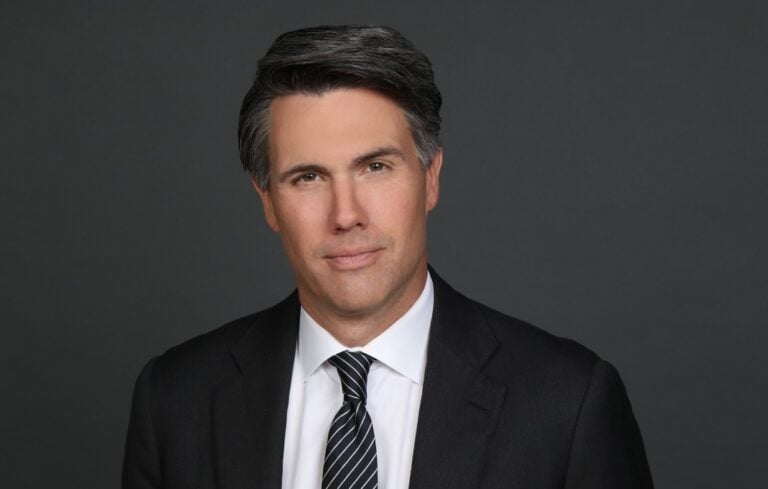
Historically, CEOs have been influential as stewards of business and economic progress. But today’s CEOs are feeling unprecedented pressure to take a stand on societal issues from Saudi Arabia to gun control. The growing call for “CEO activism” is driven by political polarization, shifting employee expectations, behaviors of new generations and the drive for instant communication.
In a Harvard Business Review article, professors Aaron Chatterji (Duke) and Michael Toffel (Harvard) define CEO activism as “corporate leaders speaking out on issues that are largely unrelated to their company’s core business.” CEO action on matters like state religious freedom bills and immigration regulations has given way to a re-examination of the CEO’s job description, expanding the role of the chief executive and, more broadly, business’s role in society.
Expectations that CEOs will speak out on social issues are high. According to the 2018 Edelman Trust Barometer, 64 percent of people globally feel that CEOs should take the lead on change rather than waiting for government to impose it, and 84 percent expect CEOs to inform conversations and policy debates.
Most often, the stance is wrongly contextualized as a binary—a CEO is an activist or not. But as expectations for action grow in tandem with the volume of issues, it’s clear that the CEO response to social issues is not one-size-fits-all. It is time to delve deeper into the practicalities of when, why and how CEOs should speak out on issues that may fall outside of their core business practices but matter greatly to their employees and stakeholders.
Conversations with dozens of CEOs and their advisors reveal six filters a CEO should consider when deciding to engage on social issues, especially when both expectations and risk for backlash are high:
CEO persona. CEOs have risen to their positions through formative personal and professional experiences that shape who they are as leaders. Their personal convictions and leadership style should factor into how, when and why they act on certain issues. Personal experience, personality traits, public presence, leadership style and industry stature should all shape how they show up on social issues in the public eye.
Employee demands. Addressing employee concerns is paramount to business leadership. At the end of the day, CEOs must act in service of their business and those affected by it. In addressing social issues, they must consider issues that matter to their employee base. The employee voice continues to grow in influence, so company culture and responsibility to employees are increasingly important, especially because retaining top talent is increasingly competitive.
External stakeholder expectations. Customers, policymakers, government officials, partners and the general public all have opinions on a business’s actions and commentary. Appealing to every stakeholder in a business’s network is impossible, so CEOs have a responsibility to evaluate the importance of each stakeholder group and address their expectations accordingly. Keep talent strategy in mind when prioritizing stakeholder expectations.
Company mission. A company’s reason for being, which is brought to life through its product and service offerings, should guide consideration of which issues the CEO should speak out about. Business practices at all levels of the supply chain can help pinpoint the areas where the CEO has license to lead. A company’s articulated values and purpose should always influence how the CEO engages on social issues outside the scope of its core business practices.
State of the business. CEOs must consider whether their business is growing, stable, declining or in transition, especially when speaking about issues perceived to be beyond the scope of core business practices. While CEOs have license to speak out about some things no matter what phase of development the business is in, phase is a key determinant for how outspoken a CEO should be and on what. A business’s transformation journey is also key; CEOs should consider where the business has been and where it is going to more acutely assess an issue’s relevance.
Industry. Every industry has its own set of challenges. Norms, practices, risk and regulatory compliance and reputation all shape the context for how messages are received, so CEOs must consider these factors when speaking out.
New issues affecting society emerge so regularly that no one CEO can authentically and productively address each one. Applying these filters, along with a discerning and calculated approach, can help a CEO make the right move—right for the business, and right for society.
Read more: The Main Drivers of CEO Activism



0

1:00 - 5:00 pm
Over 70% of Executives Surveyed Agree: Many Strategic Planning Efforts Lack Systematic Approach Tips for Enhancing Your Strategic Planning Process
Executives expressed frustration with their current strategic planning process. Issues include:
Steve Rutan and Denise Harrison have put together an afternoon workshop that will provide the tools you need to address these concerns. They have worked with hundreds of executives to develop a systematic approach that will enable your team to make better decisions during strategic planning. Steve and Denise will walk you through exercises for prioritizing your lists and steps that will reset and reinvigorate your process. This will be a hands-on workshop that will enable you to think about your business as you use the tools that are being presented. If you are ready for a Strategic Planning tune-up, select this workshop in your registration form. The additional fee of $695 will be added to your total.

2:00 - 5:00 pm
Female leaders face the same issues all leaders do, but they often face additional challenges too. In this peer session, we will facilitate a discussion of best practices and how to overcome common barriers to help women leaders be more effective within and outside their organizations.
Limited space available.

10:30 - 5:00 pm
General’s Retreat at Hermitage Golf Course
Sponsored by UBS
General’s Retreat, built in 1986 with architect Gary Roger Baird, has been voted the “Best Golf Course in Nashville” and is a “must play” when visiting the Nashville, Tennessee area. With the beautiful setting along the Cumberland River, golfers of all capabilities will thoroughly enjoy the golf, scenery and hospitality.
The golf outing fee includes transportation to and from the hotel, greens/cart fees, use of practice facilities, and boxed lunch. The bus will leave the hotel at 10:30 am for a noon shotgun start and return to the hotel after the cocktail reception following the completion of the round.